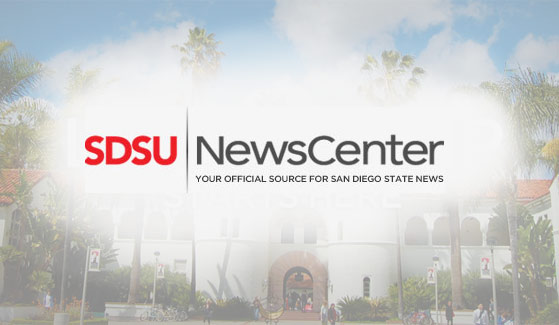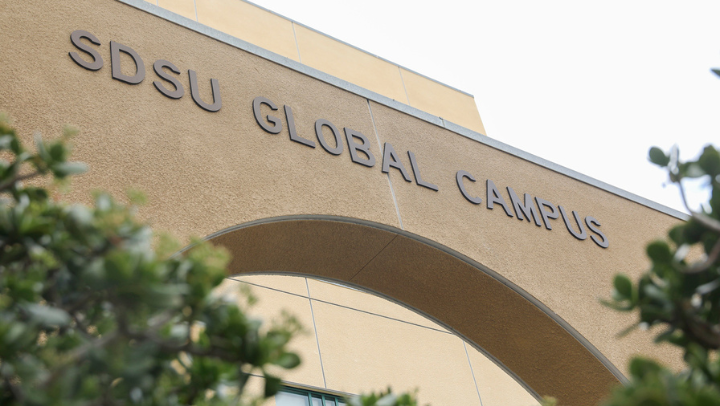Teaching Gay Rights
Dear Harvey tells the story of Harvey Milk from the perspective of those who knew him and were influenced by him.

Harvey Milk was the first openly gay politician in California to be elected to public office when he became a member of the San Francisco Board of Supervisors in 1977. Tragically, he was assassinated the next year along with San Francisco Mayor George Moscone.
An integral part of LGBT history, Milk still serves as an icon for civil rights.
Sharing Harvey’s story
Written by San Diego State University alumna Patricia Loughrey, “Dear Harvey” presents an ensemble of gay rights leaders that were all inspired by Milk in some way. Stories from Assemblymember Toni Atkins, AIDS Quilt creator Cleve Jones and California State Sen. Christine Kehoe were included in the play.
The “Dear Harvey” cast toured to three local high schools last fall, including the Coronado School of the Arts, Mission Bay High School and Patrick Henry High School. Jay Sheehan, lecturer and production manager of the Theatre, Television and Flim department, is currently scheduling spring performances for additional San Diego high schools.
Inclusive history education
The play meets educational requirements established by Sen. Mark Leno’s SB48 bill, or the Fair, Accurate, Inclusive and Respectful Education Act, which requires schools to integrate factual information about social movements, current events and history of people with disabilities and LGBT people into existing social studies lessons.
“As a member of the LGBT community I feel it is my duty to help get Harvey's message of love and acceptance to the people,” Sheehan said. “I think it is especially important for high schools to start learning about LGBT history along with other civil rights history.”
To help schools meet this requirement and add to the educational aspect of the “Dear Harvey” program, Sheehan created instructional materials that accompany the play which are sent to the high schools ahead of time.
“Gay rights are hard for a lot of teachers to talk about because they’ve never had to do it,” Sheehan said. “We want to help them have those tough conversations.”
Breaking down barriers
The play also has an interactive element that breaks down the fourth wall between the actors and audience.
At the end of the show, questions such as, “Have you ever seen someone discriminated against because of their sexual orientation?” are projected on a screen. The audience is then able to text their answers from their mobile phones and the anonymous results are projected in real-time. This interactivity then leads to a dialogue and an opportunity for the audience to share their feelings on the subject.
“Dear Harvey” has traveled to various theater festivals, won awards and sold out shows both at SDSU and on the road, but Sheehan sees the high school program as a special opportunity to reach younger audiences.
The three shows last semester were funded by an individual donor and a grant from the SDSU University Grants program will fund 10 more shows in the next school year. Sheehan plans to explore additional fundraising opportunities to ensure the program continues.



